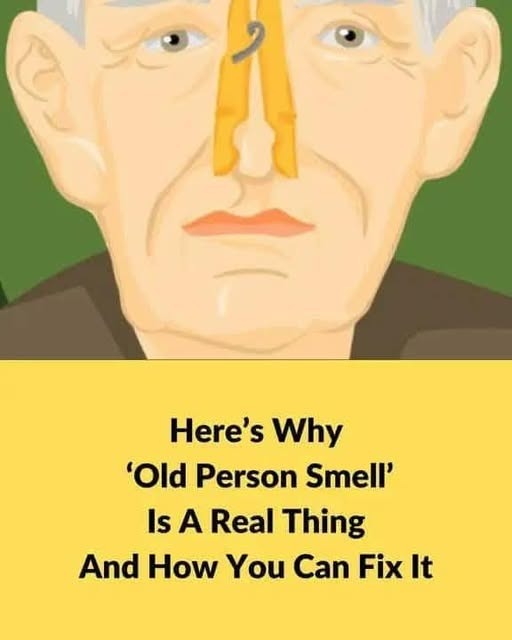As we age, our bodies undergo many changes, and not all of them are visible. One of the less talked-about aspects of aging is a distinct body odor often referred to as “old person smell.” While it might sound unkind, this phenomenon is real and has been studied by scientists. The scent is often described as musty, with hints of oil or grease, and it seems to linger even after washing.
The primary culprit behind this odor is a compound called 2-nonenal. As we grow older, hormonal shifts cause our skin to produce more fatty acids. At the same time, our antioxidant levels drop, leading to oxidation of these fatty acids. This process generates higher amounts of nonenal, which can cling to the skin and clothing. Interestingly, this smell is not necessarily linked to poor hygiene. It’s simply a natural part of aging.
Certain factors can make the odor more noticeable, such as dirty laundry, lack of ventilation, or dehydration. Illnesses and medications can also play a role. Research has shown that nonenal tends to accumulate on clothing, making it harder to eliminate.
Interestingly, humans might be wired to detect this scent. Some studies suggest that our ability to recognize the smell of older individuals could be tied to an ancient, subconscious ability to assess age and health through odor, much like animals do.
In Japan, where this phenomenon is known as kareishu, companies have developed products like persimmon-based body washes and perfumes to help neutralize the odor. But there are also simple steps you can take to manage it. Regular exercise, a diet rich in antioxidants, staying hydrated, and washing clothes frequently can all help reduce the intensity of the smell.
Aging is a natural process, and while some changes are inevitable, showing kindness and respect to older adults is timeless. Understanding the science behind “old person smell” can help us approach it with empathy and practical solutions.


